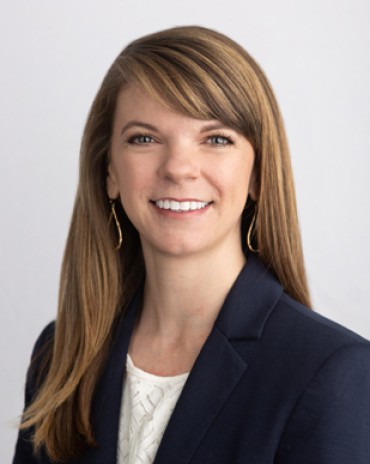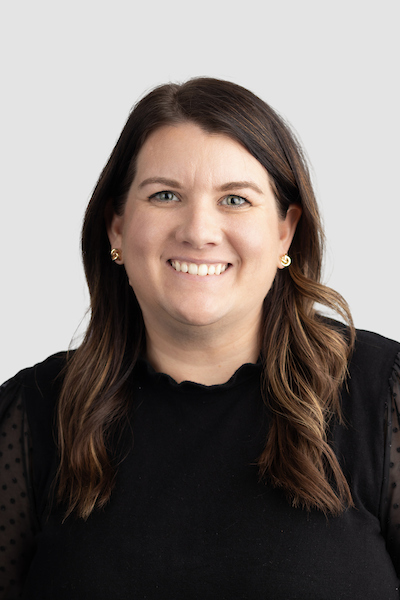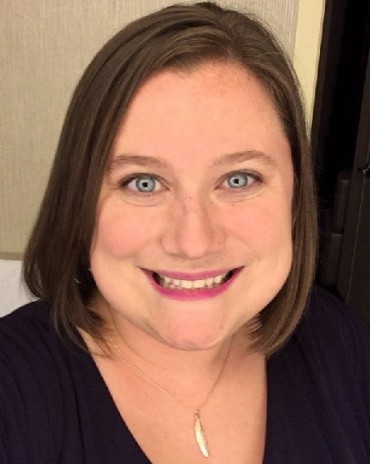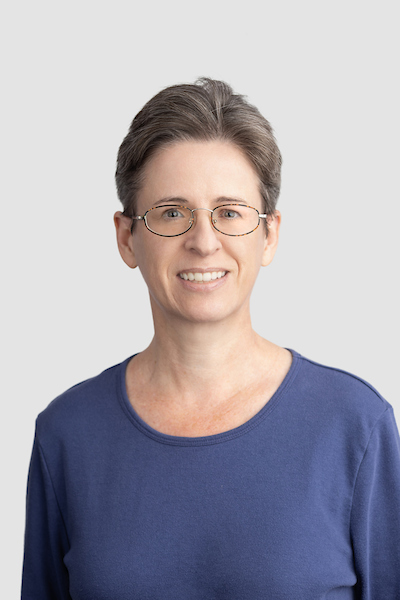
Master's Degree in Counseling at Your Fingertips
Build Your Identity Through Real-World Practice
College of Education
Location: Lincoln
Degree Type: Graduate
The Master of Arts in Counseling (MAC) program is CACREP-accredited in the specialty area of Clinical Mental Health Counseling. MAC is designed to develop highly competent mental health counselors who are skilled in the delivery of direct service, knowledgeable about current empirical and theoretical developments, and capable of critically evaluating clinical research. The Master's in Counseling program follows a competency-based, practitioner model and is designed for adult learners who are seeking state licensure in mental health counseling. The practitioner model places primary emphasis on the preparation of students for productive careers as professionals in clinical counseling settings. Coursework and supervised practical experiences provide the opportunity to learn and develop skills in the assessment of problem behavior and in interventions with children, adults, couples, families and groups. Incorporated into this approach is exposure to ethical, professional, and inter-professional issues.
MAC Program Outcomes
- MAC graduates will have the knowledge and technical skills to serve a wide variety of populations and mental health issues, in both individual and group formats as professional counselors.
- MAC graduates will adhere to the ACA Code of Ethics and be culturally-aware advocates for all clients and the counseling profession.
- MAC graduates will have developed a professional identity as a Clinical Mental Health Counselor.
- MAC graduates will demonstrate personal and professional dispositions such as cultural awareness, openness, self-awareness, and tolerance of ambiguity.
- MAC graduates will be able to critically evaluate research related to the field of counseling and use data to inform clinical decisions, as well as program evaluation within counseling settings
Accreditation
Doane’s Master of Arts in Counseling program is accredited through the Council for Accreditation of Counseling and Related Educational Programs (CACREP), a nationally recognized accrediting body for clinical mental health counseling education. The accreditation is backdated to Jan. 14, 2020 and grandfathers in all graduates of the program starting from that date.
Program Specialty Area
The Doane MAC program is designed to train students in the specialty area of Clinical Mental Health Counseling. It is expected that students will also learn competencies in this specialty area. It is anticipated that the student will develop knowledge, skills, and attitudes appropriate for counseling practice.
Methods of Instruction
The Doane MAC program provides in-person course instruction on the Lincoln campus during the evening hours to help make an already full schedule more manageable and attainable. Courses meet once a week and are offered in 16-week semesters during fall and spring and 9-week condensed semesters during the summer.
As educational requirements vary by state, students interested in these programs should consult the General Licensure and Certification Disclosure page prior to enrollment. Please be aware that states often have state-specific additional licensure and/ or certification requirements. Students considering relocating should contact their program representative in order to determine if the program meets the new state requirements.
Graduate Studies in Education Academic Calendar
Program Information
Career Paths
Mental Health Counselors
2018 Median Pay: $47,790 per year
Job Outlook: 23% from 2016-2026
Mental Health Counselors work with individuals and groups to promote optimum mental and emotional health. They help individuals deal with issues associated with addictions and substance abuse; family, parenting, and marital problems; stress management; self-esteem and aging.
Substance Abuse and Behavioral Disorder Counselors
2018 Median Pay: $47,790 per year
Job Outlook: 15% from 2016-2026
Substance Abuse and Behavioral Disorder Counselors, counsel and advise individuals with alcohol, tobacco, drug or other problems, such as gambling or eating disorders. They may counsel individuals, families, or groups and/or engage in prevention programs.
Source: O*NetOnline
Courses
Faculty and Staff




Program Evaluation Report
2021 Program Evaluation Report
Coming Soon! 2023/2024 Vital Stats Report

Kristi Pawlowski

The Doane Difference

Build Your Personal Identity
Every student that goes through our program will build a core counseling foundation through personal identity, personal intelligence, self-discovery, and introspection. At Doane, we believe that understanding how to help people starts with understanding yourself.

Build Your Professional Identity
Each student is different. Whatever the area of focus, Doane helps you build an identity around your interests. At Doane, we help future counselors build a professional identity.

Learn by Doing
Not everything can be learned in a classroom. Often a hands-on approach to learning provides a deeper understanding of the material - an understanding that’s tied to real experience. At Doane, you learn how to succeed in helping others by actually helping others.

Master of Arts in Counseling students engage in a wide range of classroom learning - which includes topics related to theories, diversity, substance use, trauma, and more - and are provided opportunities for leadership roles, presentations at national counseling conferences, attendance of guest speaking events, and participation in local/state/national advocacy and community efforts. Each of these learning opportunities are designed to expand students’ worldviews so that they can effectively and empathetically serve a diverse client base.
Master of Arts in Counseling students are required to continuously enroll in Professional Identity Development Seminars while in the program. These seminars are intentionally designed to engage students in creative and innovative ideas, discussions, and opportunities that help them expand their identity and role as counselors. Seminar sessions range from practicing creative counseling techniques, such as the use of poetry, music, animals, and crafts, to hearing about the lived experiences of guest speakers, to exploring work with multidisciplinary teams, to discussing current events. Each of these learning experiences helps students connect the field of mental health counseling to the arts, business, politics, media and more.
The final year of the Master of Arts in Counseling (MAC) program's plan of study is solely focused on the practicum and internship clinical experience. During this time, students actively apply their knowledge and skills as they maintain a caseload of real clients seeking mental health counseling within a variety of settings. These real-world settings include agencies, private practices, hospitals, schools and universities. Not only do MAC students provide free counseling services, but they also apply hands-on knowledge to writing case notes, developing treatment plans, providing assessments and engaging in various forms of supervision and staffing with a team of colleagues in the field.
Master of Arts in Counseling students engage in a wide range of classroom learning - which includes topics related to theories, diversity, substance use, trauma, and more - and are provided opportunities for leadership roles, presentations at national counseling conferences, attendance of guest speaking events, and participation in local/state/national advocacy and community efforts. Each of these learning opportunities are designed to expand students’ worldviews so that they can effectively and empathetically serve a diverse client base.
Master of Arts in Counseling students are required to continuously enroll in Professional Identity Development Seminars while in the program. These seminars are intentionally designed to engage students in creative and innovative ideas, discussions, and opportunities that help them expand their identity and role as counselors. Seminar sessions range from practicing creative counseling techniques, such as the use of poetry, music, animals, and crafts, to hearing about the lived experiences of guest speakers, to exploring work with multidisciplinary teams, to discussing current events. Each of these learning experiences helps students connect the field of mental health counseling to the arts, business, politics, media and more.
The final year of the Master of Arts in Counseling (MAC) program's plan of study is solely focused on the practicum and internship clinical experience. During this time, students actively apply their knowledge and skills as they maintain a caseload of real clients seeking mental health counseling within a variety of settings. These real-world settings include agencies, private practices, hospitals, schools and universities. Not only do MAC students provide free counseling services, but they also apply hands-on knowledge to writing case notes, developing treatment plans, providing assessments and engaging in various forms of supervision and staffing with a team of colleagues in the field.
